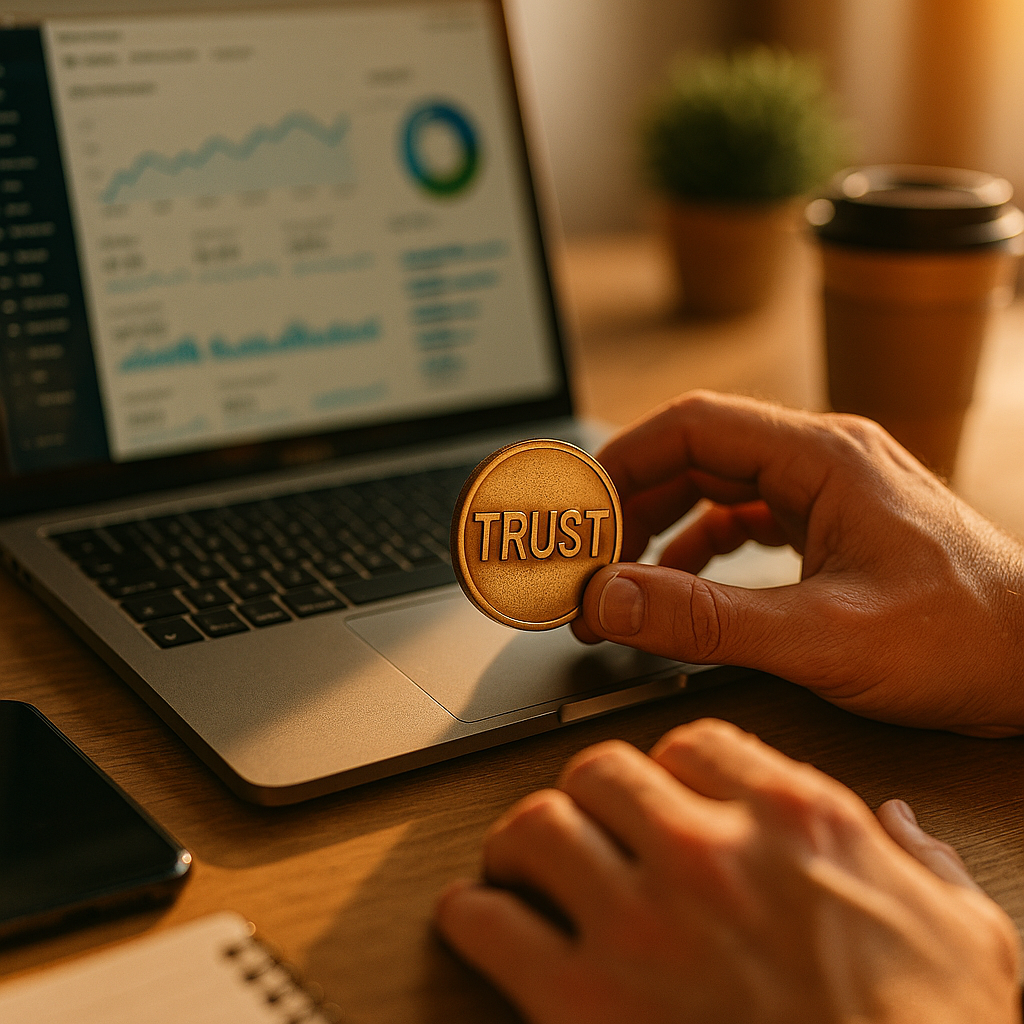In 2025, trust is redefining the landscape of digital advertising, with “how trust is becoming the new marketing currency” serving as a focal point for every ambitious brand. Today, establishing consumer confidence is often more valuable than flashy campaigns. Learn why companies are shifting strategies—and how trust can set your brand apart from the competition.
Why Trust is Essential in Digital Marketing Today
In the current digital era, consumer skepticism is at an all-time high, accelerated by data privacy breaches and misinformation. According to Edelman’s 2025 Trust Barometer, 74% of global consumers refuse to buy from companies they consider untrustworthy. Trust factors into each touchpoint of the customer journey, directly influencing conversion rates, loyalty, and long-term brand equity.
Brands must genuinely communicate, fulfill promises, and safeguard user data to build trust. This shift is not a passing trend—it’s a strategic, long-term transformation. Without trust, even the most innovative products or creative campaigns fail to gain traction.
Building Authentic Connections: The Role of Brand Transparency
Brand transparency has become a benchmark for consumer trust in 2025. Customers expect brands to be honest about sourcing, operations, and values. A recent KPMG survey revealed that 81% of consumers research brand ethics and supply chains before committing to a purchase.
Transparency not only addresses ethical concerns but also strengthens the emotional connection between companies and their audiences. It’s no longer enough to declare company values—sharing behind-the-scenes processes and openly communicating during a crisis can foster lasting loyalty.
How User-Generated Content Builds Trust Among Consumers
User-generated content (UGC) is a powerful trust-building strategy in today’s marketing ecosystem. Positive reviews, testimonials, and authentic social media posts reinforce credibility far better than self-promotion. According to a Trustpilot survey from 2025, 88% of consumers consult reviews before buying online.
Encouraging customers to share their experiences via photos, stories, or feedback creates a culture of openness. Brands can amplify genuine voices, strengthening both social proof and communal trust. UGC not only counters skepticism but actively invites customers to participate in a brand’s story.
Data Privacy and Ethics: Core to Consumer Confidence
As digital privacy concerns mount, safeguarding consumer data has moved from compliance obligation to a central pillar of brand trust. Regulations like GDPR are now baseline expectations, not differentiators. Companies succeeding in 2025 proactively educate customers about data use and offer total transparency over consent.
Deploying secure systems, signaling clear privacy policies, and quickly addressing breaches demonstrates commitment to ethical standards. When consumers feel in control of their information, willingness to share data and engage grows—in turn unlocking more personalized and effective marketing.
Trust and the Power of Consistent Brand Experience
Consistent brand experience across various platforms and channels reassures consumers that what they see is what they’ll get. From messaging and product quality to post-sale support, uniform touchpoints eliminate confusion and minimize perceived risk.
McKinsey research in 2025 found that brands maintaining consistency enjoy 23% higher loyalty rates than those with sporadic experiences. This consistency foregrounds reliability—the bedrock of trust—by assuring customers they can depend on the brand regardless of where or how they interact.
Turning Trust Into Tangible ROI: The New Currency of Growth
ROI from trust-based marketing is substantial and measurable. Increased trust generates higher conversion rates, repeat purchases, greater customer lifetime value, and proactive word-of-mouth referrals. In 2025, companies integrating trust as a KPI are outperforming competitors fixated solely on short-term revenue.
Forward-thinking teams blend trust metrics—such as customer satisfaction scores and review sentiment—with traditional analytics. This enables data-driven improvements while fostering a virtuous cycle: more trust, more advocacy, and sustained growth.
In 2025’s competitive marketing landscape, trust has truly become the new currency. Brands prioritizing transparency, user engagement, data ethics, and consistency will not only gain customer loyalty but also drive sustainable business results. Put trust at the core of your strategy to future-proof your brand.
FAQs: How Trust Is Becoming The New Marketing Currency
-
Why has trust become so important in marketing?
Trust is crucial as consumers are increasingly wary of data misuse, misleading advertising, and unethical practices. In 2025, trust acts as a deciding factor for purchase decisions and long-term brand loyalty.
-
How can brands build trust online?
Brands can build trust by being transparent, sharing genuine customer experiences, protecting data privacy, and delivering consistent interactions across platforms.
-
What is the impact of trust on ROI?
High-trust brands see better conversion rates, repeat business, and more referrals—directly translating into improved ROI and long-term growth.
-
Is user-generated content really effective for trust-building?
Yes. User-generated content provides authentic proof of a brand’s promises, reducing skepticism among prospective customers and increasing overall credibility.
-
How do data privacy and ethics relate to trust?
Protecting consumer data and ethical handling of information are foundational for trust in 2025. Clear privacy policies and honest communication reassure consumers and encourage engagement.
